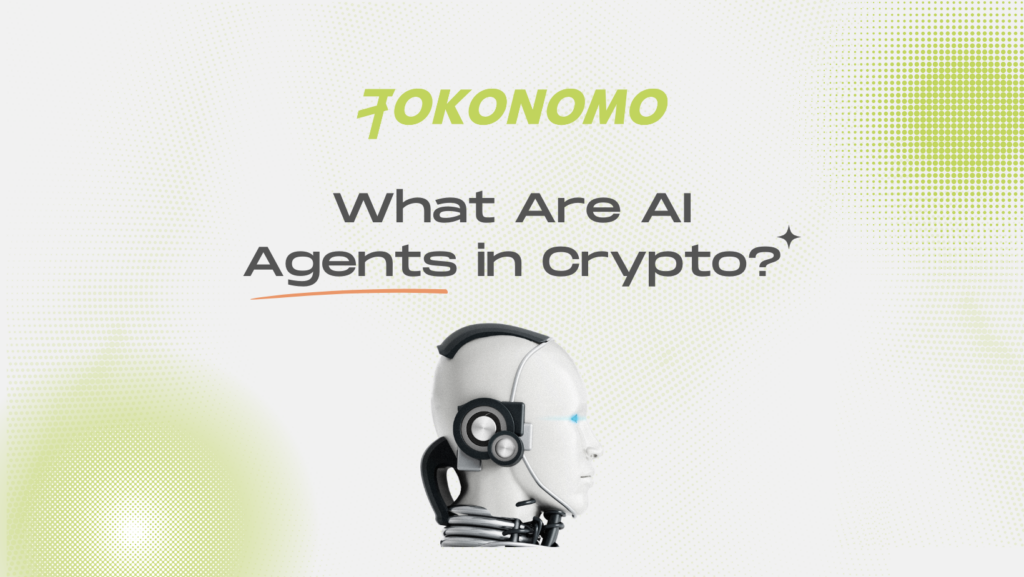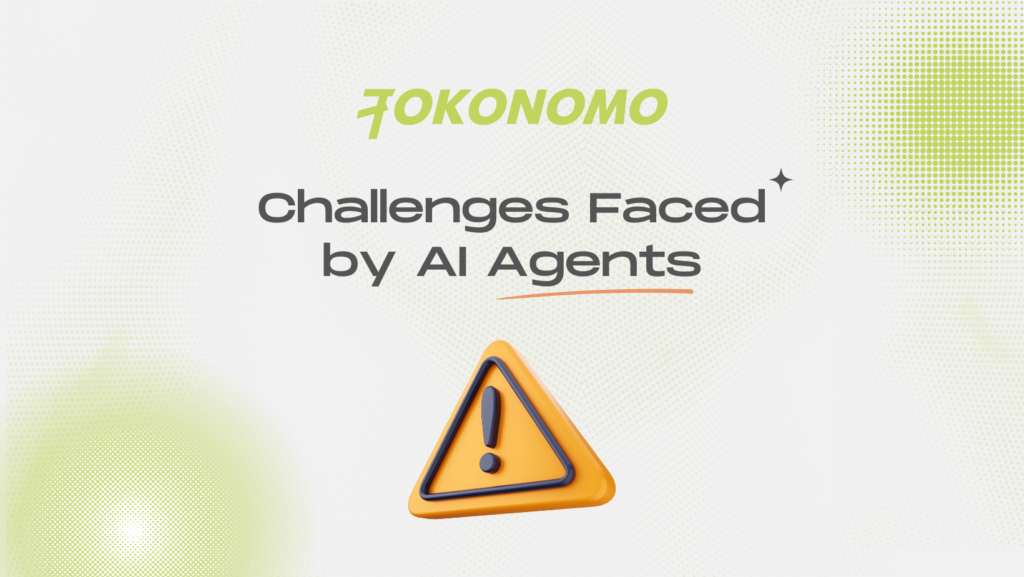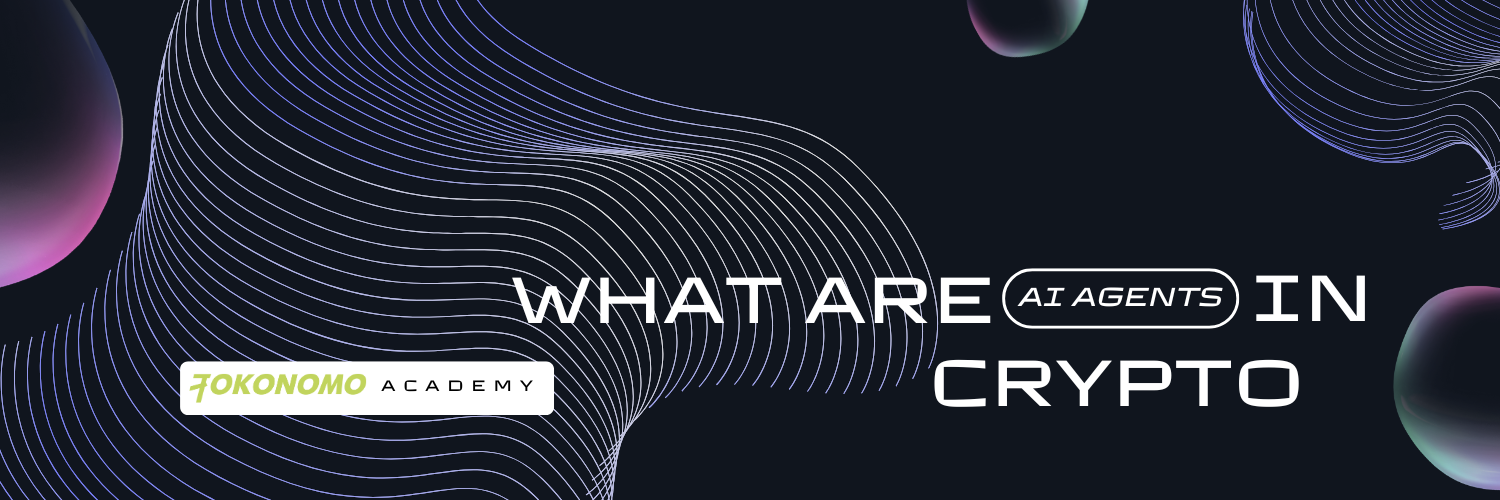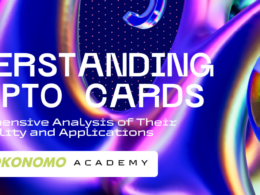Artificial intelligence (AI) revolutionizes how we live, work, and engage with technology. AI agents stand out as a groundbreaking innovation in the cryptocurrency sector, enabling smarter systems for diverse applications, ranging from trading to art creation. Discover what AI agents are and how they interact with the world of crypto.
What Are AI Agents?
We can conceptualize AI agents as advanced, autonomous software programs designed to make intelligent decisions, adapt based on their experiences, and execute tasks with minimal human intervention. These agents can analyze data, learn from interactions, and take actions tailored to specific objectives. For instance, an effective AI agent should be able to:
- Strategically manage and optimize a crypto investment portfolio.
- Automate customer service by efficiently addressing and resolving user queries.
- Handle complex operations such as conducting detailed smart contract audits or executing sophisticated blockchain-based trades.


What sets these agents apart is their inherent ability to continuously improve through the application of machine learning algorithms. By analyzing large datasets, predicting outcomes with increasing accuracy, and fine-tuning their actions over time, they exhibit a level of adaptability far beyond that of regular bots. This self-improving capability, combined with their independence, makes AI agents a transformative technology in fields ranging from finance to customer experience and beyond.
How Do AI Agents Operate?
AI agents fundamentally depend on three core pillars that enable their functionality and versatility:
- Observation: AI agents gather and process data from their surrounding environment. This data can originate from diverse sources, such as real-time financial market updates, user-provided inputs, or blockchain transaction records. This observational capability forms the foundation of their understanding and responsiveness.
- Processing: Leveraging sophisticated algorithms and advanced machine learning techniques, AI agents analyze the collected data to derive insights and make informed decisions. For instance, a trading-focused AI agent might assess market trends and historical patterns to identify potentially profitable opportunities for entering or exiting cryptocurrency trades.
- Action: Based on their analysis, AI agents carry out tasks that align with their objectives. These actions might include executing a cryptocurrency purchase, sending a tailored notification, or even generating a new digital asset.
To enhance user interaction and accessibility, these agents often utilize natural language processing (NLP), enabling seamless communication in intuitive and user-friendly ways. By integrating cutting-edge large language models (LLMs) like GPT-4, AI agents can understand and respond to intricate queries. This capability demystifies complex domains like blockchain and cryptocurrency, making them more approachable and less intimidating, particularly for individuals without technical expertise.
Crypto and AI Agents
The cryptocurrency ecosystem thrives on core principles like automation, transparency, and decentralization—values that seamlessly align with the capabilities AI agents bring to the table. By integrating these technologies, the blockchain industry is being reshaped in profound ways. Here’s a closer look at how AI agents are driving innovation in this space:
1. Smarter DeFi Tools
In the decentralized finance (DeFi) sector, managing trades, optimizing yields, or analyzing risks can be daunting and time-consuming. AI agents excel at streamlining these processes with unparalleled efficiency. For example:
- Automated Trading: AI-driven agents can continuously monitor market trends and execute trades in real-time, capitalizing on opportunities faster and more accurately than human traders.
- Risk Management: These agents can proactively identify vulnerabilities in portfolios or smart contracts, enabling users to mitigate potential losses and enhance financial stability.
2. Generative Art and NFTs
AI agents are revolutionizing the NFT (non-fungible token) landscape by enabling the creation of dynamic digital art and interactive intelligent NFTs (iNFTs). Examples include:
- Interactive NFTs: Collectors can own iNFTs that evolve and develop unique personalities based on user interactions, transforming static digital assets into immersive experiences.
- AI-Powered Creation Tools: Platforms like Binance’s Bixel empower users to design AI-generated art and mint it directly onto the blockchain, making digital artistry more accessible and innovative.
3. Simplifying Blockchain Interactions
For many, the complexities of blockchain technology can be a barrier to entry. AI agents simplify these intricacies by automating essential tasks such as crypto wallet management, transaction approvals, and interactions with smart contracts. This streamlined approach makes crypto more user-friendly, accelerating mass adoption.
- DAO Participation: In decentralized autonomous organizations (DAOs), AI agents can serve as efficient delegates, managing voting processes, proposing strategies, and automating operations based on the collective interests of token holders.
4. Enhancing Payment Systems
Cryptocurrencies are ideal for handling micropayments and frequent transactions, thanks to their low fees and quick processing times. AI agents amplify this advantage by leveraging crypto payment systems to support innovative models like:
- Pay-Per-Request Services: AI agents can facilitate micropayments, such as paying small amounts to access live data (e.g., weather updates or breaking news) on behalf of a user.
- Instant Transfers: These agents can handle seamless, automated payment transfers between parties without requiring human intervention, ensuring efficiency and reliability.
By bridging the gap between blockchain technology and AI, this powerful combination is unlocking new possibilities and driving the cryptocurrency ecosystem toward greater adoption and innovation.
Obstacles Encountered by AI Agents in the Cryptocurrency Industry


Integrating AI into the world of crypto is an exciting frontier, but it’s far from a straightforward journey. Significant challenges remain on the path to achieving a seamless fusion of these transformative technologies:
- Scalability challenges: The majority of blockchains were not originally designed to handle the rapid, real-time interactions that AI agents demand. While numerous scaling solutions, such as Layer-2 networks, have been introduced, adapting these systems for efficient and seamless global usage is still very much a work in progress.
- Accuracy and reliability concerns: AI agents are powerful but far from infallible. Even seemingly minor inaccuracies can result in substantial consequences, particularly in critical tasks like algorithmic trading, smart contract execution, or data analysis. Developers are actively exploring advanced solutions, such as Retrieval-Augmented Generation (RAG) and fine-tuned models, to minimize errors and enhance the reliability of these systems.
- Trust, transparency, and ethical considerations: Blockchain technology provides a valuable foundation by creating transparent, immutable records of AI agent activity. However, establishing decentralized trust systems that can scale to accommodate millions of autonomous agents remains a complex endeavor. Moreover, issues like data privacy breaches, potential misuse of AI capabilities, and unintended consequences necessitate robust regulatory frameworks and ethical oversight to ensure these systems serve the broader good responsibly.
These challenges underscore the need for ongoing innovation, collaboration, and thoughtful design as we navigate the intersection of AI and crypto.
The Role of AI Agents in Shaping the Future of Crypto
Although we are still in the early stages, the potential for AI agents within the blockchain space is truly vast and full of exciting possibilities. Here are just a few scenarios that could significantly shape the future landscape:
- Advanced DeFi Applications: As AI capabilities continue to evolve, these tools could unlock innovative strategies for optimizing yields, managing risks, and even enabling collaborative investment models, pushing the boundaries of what’s currently possible within the decentralized finance (DeFi) space.
- Decentralized AI Economies: Picture a network where AI agents engage with one another, each handling specific tasks with precision. These agents could work together to establish a self-sustaining ecosystem, autonomously trading services, managing resources, and contributing to a dynamic economy without human intervention.
- Widespread Web3 Adoption: By streamlining and automating interactions within blockchain ecosystems, AI agents could bridge the gap for a wider range of users—from tech enthusiasts to those with little technical knowledge—making Web3 technologies more accessible to all.
Conclusion
Through the automation of repetitive tasks, the facilitation of more informed decision-making, and the simplification of intricate systems, AI agents are playing a pivotal role in advancing the capabilities of the digital economy. Although obstacles still exist, the powerful synergy between artificial intelligence and blockchain technology holds immense potential to transform industries across a wide range of sectors, extending far beyond the confines of cryptocurrency.











